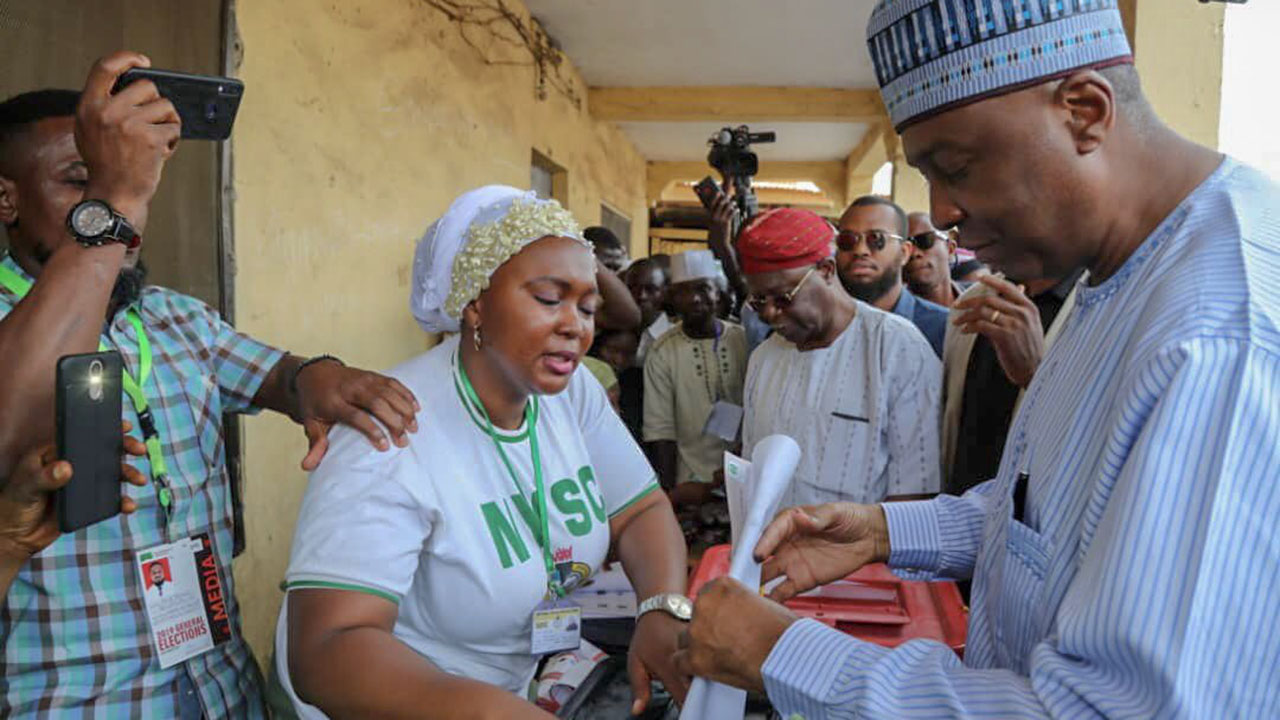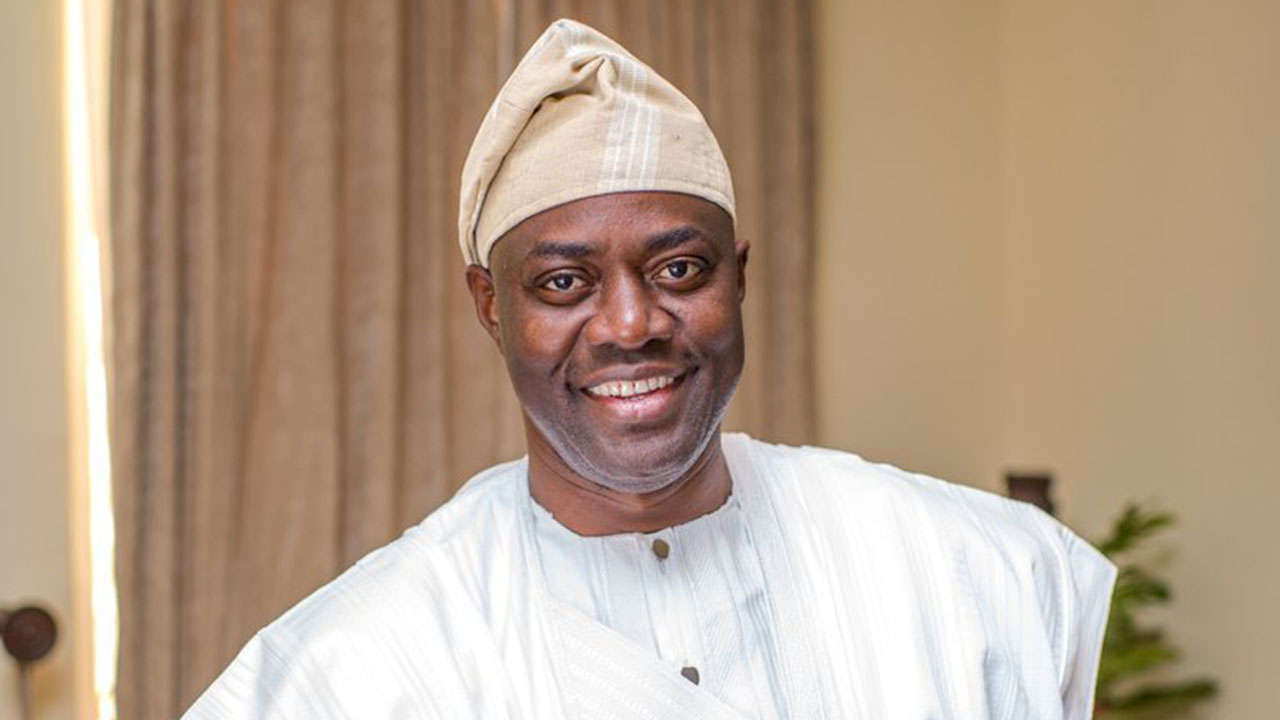
Celebrations. Protests. Concessions. All trail the recent general elections. According to a group, Nigeria Civil Society Situation Room, 58 persons have been killed during the elections.
The high number of deaths tells the tale of occurrences and scenes that characterised the distasteful process of choosing the country’s leaders.
It all started with the Presidential and National Assembly elections held on February 23, 2019 across 36 states including the Federal Capital Territory (FCT), Abuja, where over 20 lives were lost.
The polls were characterised by heightened incidents of unbridled vote buying, ballot box snatching by hoodlums, and shooting at polling units in a number of states, including Lagos, where some hoodlums burnt ballot boxes.
However, two weeks later, it got worse with the governorship and States House of Assembly elections, with increased violence, voter apathy, as well as militarization of the exercise.
It was gathered that millions of eligible voters had decided to stay away from casting their ballot because of reports of violence, alleged manipulation, and incidents of multiple deaths, among other factors that marred the conduct of the presidential and National Assembly election.
Concerned citizens attributed the problem to incapability of the Independent National Electoral Commission (INEC) to conduct a free, fair and credible elections as well as the discontentment of the people with the two leading political parties – All Progressive Congress (APC) and Peoples Democratic Party (PDP) in the race for the elective positions.
Regardless of events and circumstances that may have characterised the conduct of the polls, the elections have come and gone, some results have been declared, with winners and losers already in public knowledge, except for a few places where elections did not hold as a result of violence or declared inconclusive.
With the National Peace Accord as background, which was to prevent violence and facilitate acceptance of election results, signed twice in Abuja by all presidential candidates and chairmen of political parties contesting the 2019 general elections, what became the outcome of this transition process? What becomes of winners and losers of the elections, especially those who have conceded defeat and congratulated the winners and those who are insisting on proceeding to the courts to reclaim their assumed mandate?
Atiku vs Buhari
The spirit of sportsmanship may not be for everyone especially when the aggrieved feels the process was not credible and transparent.
Weeks after the declaration of incumbent President Muhammadu Buhari of the APC as winner of the presidential election, his closest rival of the PDP, Atiku Abubakar, refused to concede defeat.
The former vice president insisted that the election was not free and fair but marred by many irregularities; therefore, he would challenge the outcome in court.
Chairman of INEC, Prof. Mahmood Yakubu, declared President Buhari winner of the election, having scored 15,191, 847, while Atiku polled 11,262,978 votes.
But Atiku, in a statement he personally signed, titled, ‘Democracy will not be emasculated in Nigeria,’ said, “If I had lost in a free and fair election, I would have called the victor within seconds of my being aware of his victory to offer not just my congratulations, but my services to help unite Nigeria by being a bridge between the North and the South.
“However, in my democratic struggles for the past three decades, I have never seen our democracy so debased as it was on Saturday, February 23, 2019. 2007 was a challenge, but President (Umaru) Yar’Adua was remorseful.”
Akpabio vs Ekpeyong
Former Senate Minority Leader, Senator Godswill Akpabio, will not go back to the senate according to the votes of the people in Ikot Ekpene Senatorial District.
Akpabio, now a member and candidate of APC in the district, lost to Chris Ekpenyong of PDP, polling 83,158 against PDP’s 118,215 votes. But the former governor is claiming victory in the election and accused INEC of tampering with the election result, while insisting on reclaiming his mandate.
The senator filed a lawsuit in a high court in Abuja for “a judicial review for the issuance of a writ of mandamus, prohibition, injunction, and other declaratory reliefs against the respondent (INEC). He obtained a controversial order, which restrained INEC from issuing a certificate of return to his opponent, Mr. Ekpenyong.

Saraki vs Oloriegbe
Senate President, Bukola Saraki, is one of the greatest losers of the 2019 general elections, having lost his return ticket to the senate to APC’s Ibrahim Oloriegbe; lost the presidency as the Director General of PDP’s Atiku Abubakar campaign team and the governorship seat to APC’s candidate, Abdulrahman Abdulrasaq.
The PDP senator has proved beyond all reasonable doubt to be a great sportsman. Barely 24 hours to the declaration of the new Kwara Central Senator-elect, the two-term senator, in a statement by his Special Adviser on Media and Publicity, Yusuph Olaniyonu, said despite the reported inadequacies of the elections in the state, he was wishing the candidates who emerged victorious the best of luck.
He said, “The election was generally peaceful; there were inadequacies like the card readers not being used in over 70 per cent of the polling units while there were multiple voting, over-voting and other discrepancies that were reported by agents of his Peoples Democratic Party (PDP) across the state.
“However, whatever the final outcome of the election, I wish the candidates that have emerged all the best in their attempts to serve our people. It is my prayers that the good people of Kwara State will always have the best from any government both at state and federal levels.”
Similarly, Saraki congratulated the state’s governor-elect, Abdulrasaq, who polled 331,546 to beat his closest rival, Razaq Atunwa of PDP who got 114,754 votes.
In a message on his official Twitter page, Saraki said, “I thank all Kwarans, particularly PDP supporters, who worked for the party in the just concluded elections. My congratulations go to Abdulrahman Abdulrasaq and all those who emerged at all levels. I wish them all the best.”
Agbaje vs Sanwo-Olu
Jimi Agbaje of the PDP, who has become a regular competitor in Lagos gubernatorial race, is no doubt a good sportsman.
The pharmacist, who contested the seat for the fourth time, hurriedly placed a congratulatory call across to Babajide Sanwo-Olu of APC less than two hours after declaration of results. Sanwi-Olu defeated him with 739, 445 against 206, 141 votes.
The Lagos governor-elect announced the conversation on his Facebook page, where he wrote, “At exactly 19:07, I received a call.
Thank you Jimi Agbaje for your congratulatory call filled with kind words. It was an intense campaign and I am happy we can now focus on the very important job at hand – delivering a Lagos that works for all. #ForAGreaterLagos.”
Akinlade vs Abiodun
The fierce battle in Ogun State wasn’t just between PDP and APC as in the case of other states.
The incumbent governor, Ibikunle Amosun, who is being accused of anti-party activities, swore to handover to his god-son, who contested under a third party, Allied Peoples Movement (APM).
Unfortunately for Amosun, his APM candidate, Adekunle Akinlade, lost to APC’s Dapo Abiodun who polled 241, 670 against his 222,153.
But Akinlade, who described the result as a rape of the people of Ogun State, assured his supporters that the leadership of APM would explore all legal means to undo the alleged injustice. He said the governorship election was hijacked by hoodlums and unidentified uniform men during the collation stage, who further manipulated the results in favour of APC.

Adelabu vs Makinde
The heated contest between PDP’s Seye Makinde and APC’s Adebayo Adelabu had come to a resolution with Makinde polling 515,621 to beat Adelabu, who got 357,982 votes.
Adelabu, a past deputy governor, had quickly congratulated Makinde while expressing condolence to the families of those killed during the poll. They include a member of House of Representatives from Lagelu/Akinyele Federal Constituency and a voter.
In a statement, he personally signed on Monday, Adelabu congratulated Makinde but said APC was studying the events that unfolded during the exercise.
The statement read, “I am full of gratitude to God and to every single one of you for the journey so far. I offered myself up for service for the good of Oyo State. We ran a campaign that was issues’ based and was above board all through and I am quite proud of that.
“No life is worth being lost for any reason. I sincerely sympathize with the families of the deceased. May their souls rest in peace. While my party is studying the incidents of violence and various reported cases of electoral malpractices to determine further course of action, if necessary. I congratulate Seyi Makinde of PDP.”
[ad unit=2]



